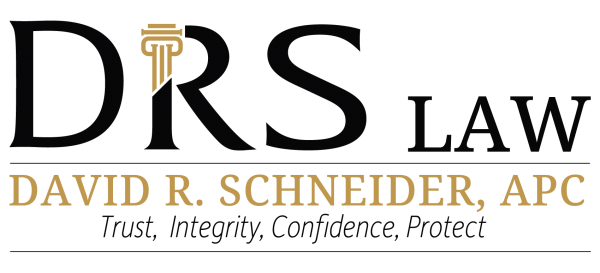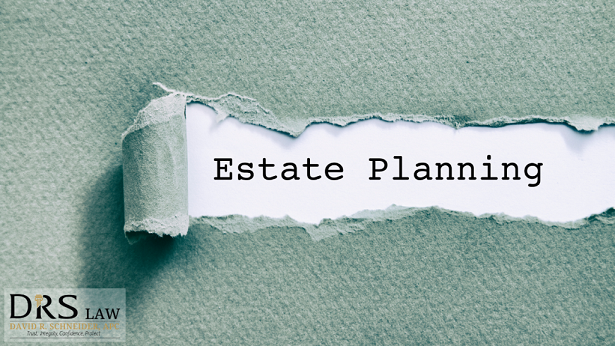Friends and family have asked us repeatedly when a person or couple should start their estate plan. The short answer is always the same- right now! Of course, we hasten to add to minors and people just getting started with financial stability that the list of things that they should work on is short. However, even for teenagers, there are things that are important in their own right, and everything that we counsel helps prepare them for the future and increases their level of responsibility. The old souls are the easiest to work with among the youth – they love planning. The hardest ones to reach are the busiest ones. They feel that they simply don’t have the time. They are usually correct, but that doesn’t mean they cannot start estate planning. It just means they need to delegate an act that they are generally getting good at or are experts at.
Once we explain that not planning will cost thousands to millions of dollars, depending on the size of the estate, people act. Failing to plan is planning to fail and is just as accurate in the estate planning context as anywhere else. Aside from the loss of assets, an estate that you do not plan will be planned by someone: Either a judge or attorneys will make critical decisions if you do not make them in a timely fashion. The assets that you have worked hard to accrue are going to go the way state lawmakers dictate. We haven’t found many people who thought it was a good idea for a chunk of their hard-earned funds to be siphoned off to pay people whom they didn’t select to make decisions that they might not have approved of. The best estate planning attorney is the one you consult before your plan, will or trust is challenged.
What is Estate Planning?
To answer this question, we will provide a layperson’s answer and a technical answer. To the layperson, estate planning is the process of protecting and growing your estate while directing where the assets of the estate will go during your life and after. The technical answer is that estate planning is a mesh of documents and legal instruments, sometimes quite simple, that will regulate the assets that are placed under their control. Everyone has heard of wills and trusts. Here is a list of a few of the documents and instruments that you might call into service that you may not have heard of:
- Advanced directives
- Durable power of attorney
- Living will
- Testamentary trust
- Guardianship designations
- Beneficiary designations
- Irrevocable trust
- Disposition of final remains
- Totten trust
- AB trusts
- QTIP trusts, etc.
Who Needs Estate Planning?
Technically, not everyone NEEDS estate planning. There are people who are content dying and leaving the distribution of their earthly belongings to the whimsy of the legal system. On the other end of the spectrum, there are people who are absolutely dependent on estate planning. For example, in certain special needs cases, beneficiaries may be reliant on distributions that fund health care expenditures, including medications, therapists, treatments, and assisted living facilities or workers. However, almost everyone can benefit from estate planning.
Aside from the direct benefits, many of our young clients find that the focus on creating a will or trust increases their overall discipline and earning capacity. The more assets you have, the more you have to lose, and the more critical estate planning becomes. If you are close to or in retirement, planning is highly important because the failure of your assets to produce as expected, or diminishing assets, could force you to delay or come out of retirement.
The last group, which doesn’t reflect on the priority with which it should engage in comprehensive estate planning, is parents. Having kids, as you may know, changes everything. For couples that are interested in having children, we strongly encourage estate planning before pregnancy. You will be too busy with other pre- and postnatal activities to accomplish estate planning effectively. You may not expect changes to your estate and your status, but change happens, and often unexpectedly, and to those who are least prepared. Murphy’s Law is in full effect in estate planning law!
One specific application of estate planning that deserves special mention is the preservation of assets. This can include protection against tax liability and against lawsuits. For middle-class and high-net-worth individuals, it is often worth setting up these protections through a will and trust. We relish preventing the loss of your assets.
What Documents are Needed for Estate Planning?
As you might suspect, the answer to this question varies widely with the size and complexity of your estate and, more importantly, the size and complexity of the goals that you have for the estate. Our office has constructed plans for every size of estate, and we have the ability to quickly and cost-effectively create yours.
When Do I Update My Estate Plan?
Similar to the answer above, probably right now! To add more substance to that answer, as soon as you have a change in assets or property that you cherish or dependents (we assume that you cherish them. In the case that you don’t, we can write up a plan that disinherits them), you should have an update to your plan in place. We encourage you to discuss and have the update ready to go if you expect the above changes or believe that they are possible.
Do I Need an Estate Planning Attorney?
You can opt out if you have a small, simple estate with no real estate, no existing conflicts among heirs over the estate and can administer the legal instruments and documents effectively on your own. Regardless of small or large estates, having a qualified attorney can guide you through the planning process and eliminate the stress.
Consultations are available virtually and in the office, and the Law Offices of David R. Schneider are happy to help clients throughout California. David has helped thousands of families successfully set and reach their estate planning goals. He sees clients by appointment only to ensure that each has his undivided attention. Contact Us to schedule a free consultation today at 805-374-8777 or dschneider@drs-law.com. We look forward to hearing from you and helping you set up your estate plan!

